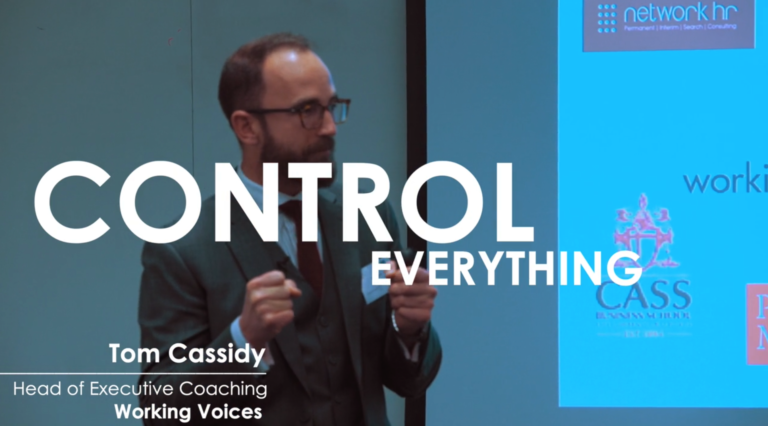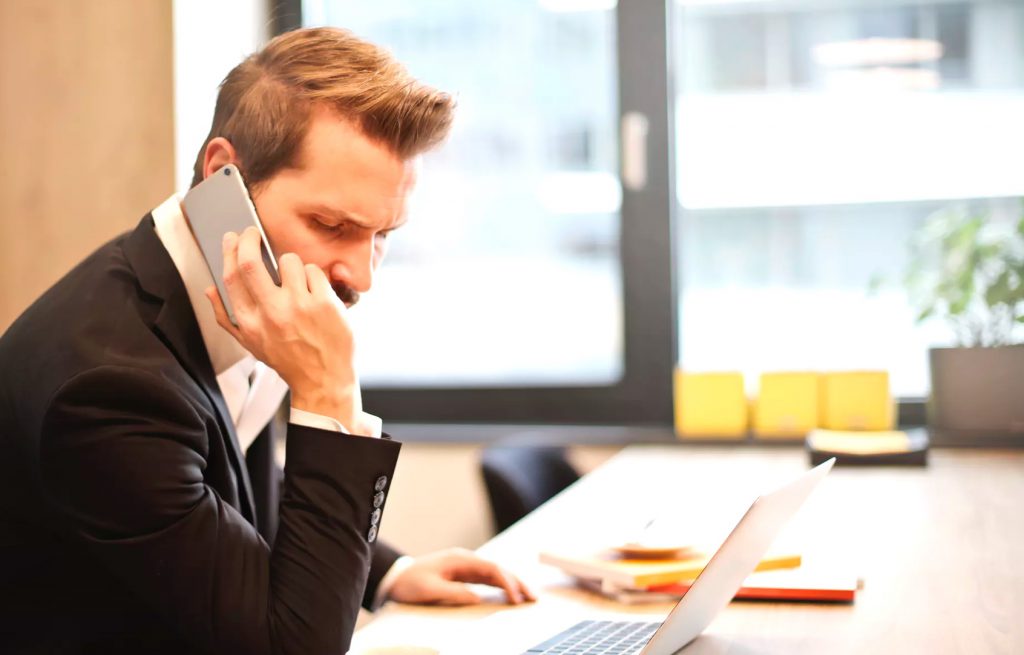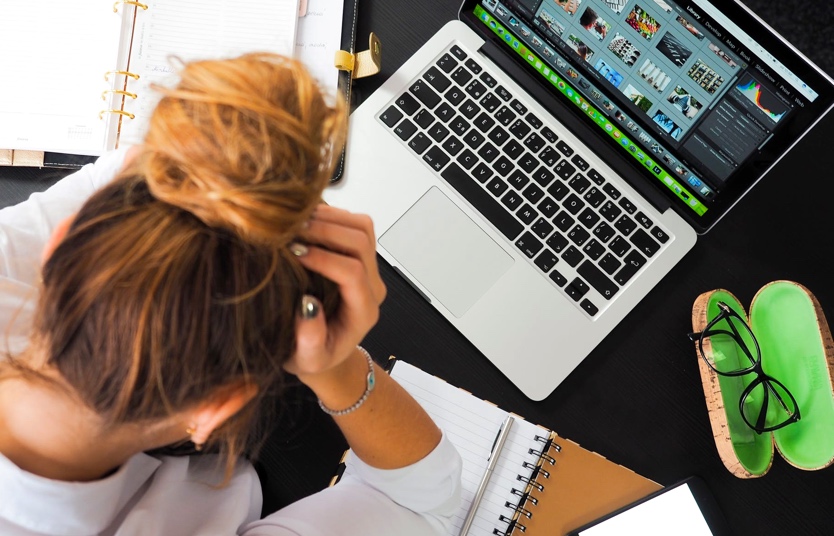Life under lockdown is complicated. Cocooned as we are, there are physical and emotional challenges, there is also more free time than we’re used to. When I lost a little motivation in regularly running, my family suggested that if I finish at 8pm on a Thursday I can jog home to excited applause from grateful neighbours standing on their doorstep. Disingenuous as this might be, it describes a Britain we couldn’t have imagined just a few short weeks ago.
Our struggles with exercise aside, the biggest feature of lockdown is the uncertainty it brings about the future. Covid-19 is a terrible disease, a watershed moment that will mark the end of some things and the beginning of others. In defeating it, we will come to see it as a force for change, offering an opportunity to anyone looking to make a break from the past. Already, increasing numbers of people are using their free time to prepare themselves for better days ahead, using virtual learning as a gateway to the new future.
In his book Time and How to Spend It, James Wallman says personal growth is central to many psychological theories of long-term happiness: “You could say that humans are like bicycles: if you’re not heading towards something you fall over.” Wallman is wary of what he calls “weapons of mass distraction”, such as flicking through WhatsApp memes or watching boxsets. But for him, personal growth gets us a long way towards something more fulfilling in the future, or at least gets us off the sofa.

Preparing for change
The world was already changing rapidly, but the pandemic has accelerated it. On March 29, Jenny Harries, the UK’s deputy chief medical officer, warned that the strategy of a three-week review of the lockdown will go on “probably over the next six months”. As businesses adapt to ongoing restrictions and uncertainty, there will likely be many changes in the workplace, which in turn will mean we will need new skills to cope. If we are to pursue personal growth to hold on to sanity, as Wallman suggests, then perhaps we could start by developing the skills we may need at work in the future.
How are things likely to change? Principal examples include:
1) Flexibility is likely to increase. Once, this meant flexible hours in the office. Now it’s more likely to mean fewer jobs for life and a higher proportion of flexible and / or shorter employment contracts as businesses do what they must to keep going. This is something we’ve already seen with companies involved in the gig economy, now we’re likely to see more of it in other sectors too. Change at work may become a constant presence in our lives, requiring us to be more adaptable than we needed to be in the past.
2) More of us are working from home than ever, and we’re finding that help and advice aren’t as readily available as before. In isolation, we have to think more for ourselves and this trend will continue as working from home becomes less a temporary fix and more a permanent development. This new way of working favours self-starters and those skilled in critical thinking. Managers need to be able to motivate individuals and teams scattered across many locations. Working alone and leading at distance are challenging tasks that require a strong grasp of emotional intelligence.
3) In working from home, we will need new ways to get our message across. Addressing a meeting, quick asides to colleagues, making your case and winning the argument are all harder to do remotely than in the room. To ensure a message lands with impact in a virtual meeting, we must rely on a greater sense of personal presence than when addressing people face to face.
In all these areas of change, we must become adept at a suite of professional skills that will ensure our voice is heard. During lockdown, the best chance of developing these skills is via eLearning platforms such as Working Voices. Virtual learning professional skills courses offer a range of techniques, many complementing each other. For example, skills in assertiveness, personal impact and influencing will lead to stronger performance in presentations, communicating and persuasion. The best courses are those that are appropriate both for individual consumers looking for a little help with something specific, and Learning and Development managers looking for support for their team.
Since the lockdown began, there has been a surge in enrolments on online learning platforms. This applies both to professional skills and to more academic subjects, often referred to as moocs – massive open online courses. Two providers, EdX and Coursera – now ranking among the world’s biggest websites – offer access to thousands of university-affiliated courses, often with free enrolment though they charge for any certificate verifying that you have completed the work.
The world at our fingertips
When you’re done learning something new for the day, it’s nice to have a little distraction. While we’re dusting off the yoga mat or rediscovering a love of drawing, it’s easy to forget the pandemic is global. Venues, locations and services around the world are bringing the world to our doorstep. We can enjoy anything from a virtual tour of ancient Rome to virtual tours of America’s national parks, or swing by the live cams at Monterey Bay Aquarium.
Prestigious galleries and museums around the world are also offering free virtual access to their collections. Visit New York’s MoMA without the crowds or tour the Uffizi in Florence and see one of the best collections of Renaissance art in the world. After Italy you can visit the Musée d’Orsay in Paris or in the UK take a look at Tate Britain or The British Museum. And when you’re done with high art, there’s karaoke with friends via apps like AirConsole which lets you turn your smartphone into a mic. Or if your mates’ musical talents aren’t cutting it, maybe instead check out an online gig on YouTube, such as classics like Nirvana Unplugged or Radiohead’s Glastonbury set in 1997.
However we’re using our free time, the world is knocking at our door. As terrible as the virus is, James Wallman makes the point that it is an opportunity to learn new skills and become someone more than we used to be. Yoga, drawing, cooking or even learning to whip up a quick ‘quarantini’ cocktail provide instant distractions from the craziness outside. But one day the lockdown will end and we will emerge blinking into the light, which begs a couple of questions. Who do we want to be at that moment, and what are we doing about it now?
Top tips for eLearning:
- Decide when you learn best and create a schedule that accommodates this, your schedule can be far more appropriate to you than any classroom course.
- Choose a platform that enables you to stop and start your course on whichever device you happen to be using at the time.
- Treat your eLearning exercise like a physical class you’ve signed up for, turn up on time and stay to the end of the session.
- Commit to class exercises and homework and complete the course in full.
- Find a study buddy or form a bigger learning group, so that you can motivate each other and enjoy the course together.
- There are many ways to interact in virtual classrooms through chat and rating features, as well as social learning. Take an active part in learning and get the most from the experience.






